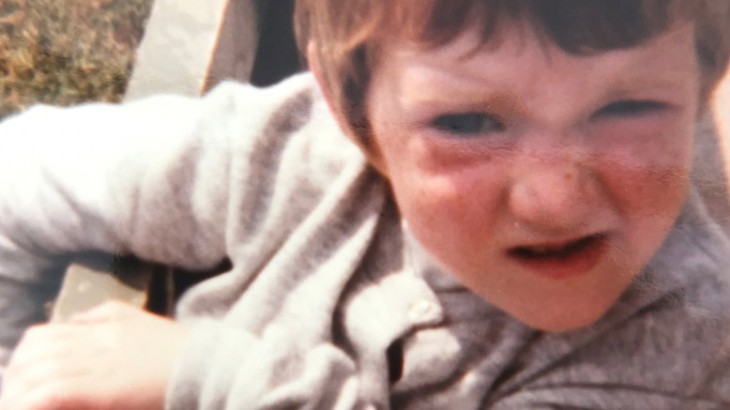'I’m not a tomboy!'

Today, content apprentice Elizabeth Pencavel, explains how she associates herself as non-binary and why we should all stop making assumptions.
‘When I was a kid I had short hair, I liked climbing trees, I played with my Transformers, mostly wore trousers, and I liked gardening with Dad,’ said Elizabeth. ‘When I went on holiday, other kids often thought I was a boy. People called me a tomboy. I’ve never considered myself a tomboy.
‘I also liked playing Sindy dolls with my sister and I’d sometimes wear a Sunday best dress to church. I’m just me – but people like to categorise – it makes them feel safer. People like to make sense of the world in a way that suits them.
‘However, we’re all different and I’m yet to meet anyone who 100% matches the expected categorisation of female or male. The dictionary definitions of female and male denote sex organs. As such, I would be considered female – and I appreciate those who choose to define themselves this way.
‘Nevertheless, I believe that gender has become more than about simply sex organs. When the media, historical and cultural values come into force, people are seen differently because of their gender. It becomes natural that people use the words female and male to categorise people and as a result, treat them differently. I don’t want to be treated differently because I have a vagina, and I don’t associate myself with the cultural norms of female, despite my sex organs. In my opinion, I believe everyone should be treated equally – but differently – as individuals, and not because of their genetics or gender.
‘This is why I associate myself as non-binary. Few people would guess this from meeting me. In fact, a lot of people don’t know the term. If you feel the need for categories, ask people the question, you might not get the answer you’re expecting. Wikipedia states: “Non-binary, also known as genderqueer, is a spectrum of gender identities that are not exclusively masculine or exclusively feminine—identities that are outside the gender binary.”
‘These days, when I wear a dress or a skirt, people often feel the need to tell me. Yes, I do choose to wear dresses and skirts sometimes, but most of the time, I feel more comfortable in trousers. For me, they are more flexible and less hassle, but I don’t need to be told on the days that I’m not wearing trousers what I’m wearing. I chose my clothes and put them on – I am aware. Let’s try not to make judgements about the way people look and what they choose to wear or make it a part of our daily commentary. Come on, there are more important, more interesting and more fun things in life!
In our line of business, I’ve heard and read the term ‘Postmen’ being used too regularly, sometimes in the context of postmen and women, but not always. As the second largest employer in the UK, should we look at re-naming this role? We used to have policemen and policewomen, we now have police officers. Similarly, we used to have firewomen and firemen, and now we have firefighters. Is it time for a change?
What can we all do to address inequality in the workplace?
- Kindly pull someone up when they use genderised or inappropriate language
- Treat each other equally and with respect
- Don’t judge, invite discussion and listen – learn from others
- Get to know people who are different from yourself
‘This last point is interesting to me. Without contact with people outside our comfort zone, it’s easy to fall victim to stereotypical thoughts and misconceptions. If someone is different to you, get to know them and why they are different. You may be surprised at how similar they are when you get to know them.
‘Perhaps you’ll learn more about the world around you and other people’s perspectives. When a kid chooses to wear trousers and play with trucks, maybe they’re just that – a kid. When an adult doesn’t conform to the stereotypes and categorisations that you’re familiar with, perhaps they’re simply a person. I by no means claim to know it all, I’m learning all the time, but let’s do it, let’s stop making assumptions and make Royal Mail and the world a better place for all.’



